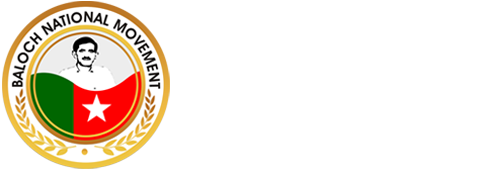Geneva: “It is imperative that the international community should acknowledge and addresses the plight of the oppressed nations. By working together, we can create a strong and effective movement for justice, peace, and freedom for all oppressed nations.” This was said by Dr. Naseem Baloch, Chairman of the Baloch National Movement while addressing a side event of the Pashtun Thafuz Movement (PTM) on the occasion of the 52nd session of the United Nations Human Rights Council (UNHRC).
Dr. Naseem Baloch said: “Since its annexation in 1948, Balochistan has been plagued by numerous human rights violations that have been a cause for concern for domestic and international human rights organizations. Enforced disappearances, extrajudicial killings, torture, and ill-treatment, and restrictions on freedom of expression and assembly are some of the most ruthless human rights violations. The practice of enforced disappearances is rampant in Balochistan and KPK, with many individuals, including political activists, journalists, and students, being abducted by state security forces or by their proxies. Several of these individuals remain missing, and their families continue to seek justice. The Pakistani government has also imposed restrictions on freedom of expression and assembly, particularly for those who criticize the state’s policies or advocate for the independence of their nations.”
He described the current situation of human rights in the subjugated regions and said: “ These human rights violations have caused fear and insecurity among the masses, particularly those critical of the state’s policies. The Pakistani government has been criticized for its failure to address these violations and provide justice to the victims and their families. Even prominent politicians like Ali Wazir, a member of the National Assembly of Pakistan representing PTM and the Waziristan region, has faced illegal detention and mistreatment during custody. So, one can imagine the situation of an ordinary Baloch, Pashtoon, Sindhi, Kashmiri, or Gilgit Baltistani.”
He said: “I want to emphasize the importance of the United Nations taking practical steps to address the severe human rights violations occurring in Balochistan, KPK, and to other oppressed nations. To ensure a fair assessment of the situation, it is crucial for the United Nations and other international organizations to incorporate the perspectives and reports of the people who are most affected by the human rights violations.”
According to Chairman Dr. Naseem, the silence of the international community has given a concession to Pakistan to oppress; he said: “The international community should take a proactive approach in addressing the human rights situation. The silence of the international community on the issue has allowed the Pakistani government to continue its policies of oppression and human rights violations with impunity. It is imperative that the international community should acknowledges and addresses the plight of the oppressed nations.”
He described the support of the international community as effective against Pakistani atrocities, “The PTM and other organizations working towards the betterment of oppressed nations, need international support to amplify their voice and push for the change. It is crucial for international media outlets to report on the human rights violations and the political struggles of the oppressed nations in Pakistan. Moreover, international NGOs and human rights organizations should collaborate with local activists and organizations to document the cases at a larger level.’’
On this occasion, he emphasized on the unity and solidarity between the oppressed nations, “ Not only Baloch and Pashtoon, but also Sindhis, Kashmiris, and Gilgit Baltistanis face the same oppression in Pakistan and have been deprived of their identities, cultures, and languages. Our political and social activities have been suppressed, and those who dare to speak up against these atrocities are abducted, disappeared, and ultimately killed.”
“In the face of such oppression, it is crucial for us to remain true to our historical roots of a united front against the common oppressor and work together.”
He offered to make Baloch and Pashtun historical relations the basis of a common struggle against foreign invaders, “Baloch and Pashtoon have a rich history of cultural, linguistic, and historical ties and have had close and collaborative relationships for centuries. They have stood together in times of war and peace against invaders and colonizers, such as the British, and have opened their doors to each other in times of need. During the Soviet-Afghan War, many refugees from Afghanistan found refuge in Balochistan, and likewise, many Baloch refugees have found a safe haven in Afghanistan, receiving support from the Afghan people.”


